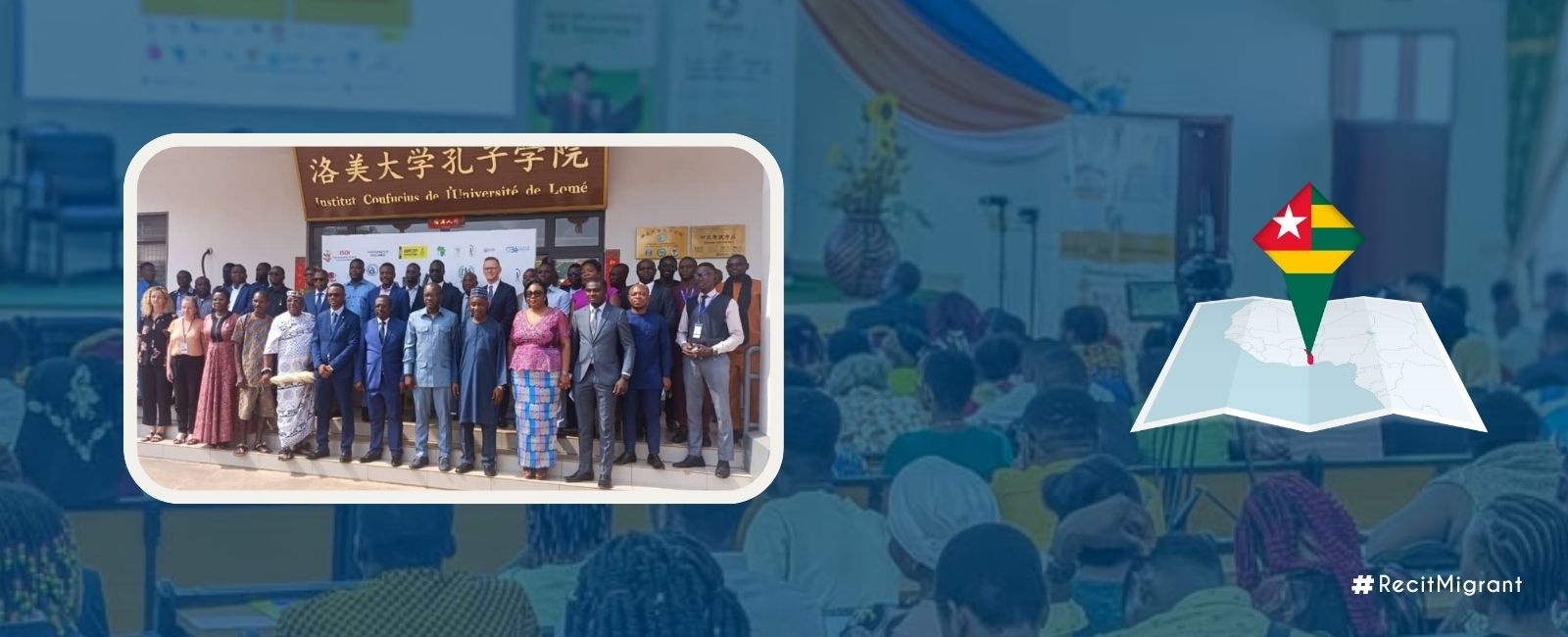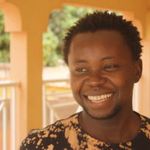

Migration is a phenomenon as old as humanity itself. Flows of people arrive and depart from one country to another, year in year out. In 2020, the International Organisation for Migration (IOM) estimated that more than 280 million people lived outside their country of birth. Each year, the statistics in this area increase, often fuelling debates. The issue of migration remains a major concern that requires reflection in order to find the appropriate solutions. To this end, the Clinic for Legal and Social Expertise (CEJUS) organized the 6th edition of the Forum Harmattan from February 19 to 21, 2025, in the Togolese capital, under the theme: “Migration and Sustainable Development: Ensuring Human Dignity, the Inclusion of Youth, and Women.”
Population mobility has always been a natural occurrence, but not without its constraints. In recent years, migration has been the subject of heated discussions. From Europe to Canada, via the United States with the election of Donald Trump into the White House and his anti-migration policy, migrants are suffering in silence in defiance of international law. They face degrading and humiliating situations. In some countries, they are regarded as ‘invaders’. Some find them ‘cumbersome’. Yet ‘we are all migrants’, exclaimed Professor Adjita AS, Dean of the Faculty of Law at the University of Lomé. He recalled that human beings have always moved in search of a better life. In their search for better living conditions, migrants face uncertainty and multiple difficulties. For example, migrants are faced with restrictions in certain countries, which undermine their human dignity, stated the Dean, who noted the paradox that most often those who fight against migration are themselves migrants who have become natives.
Leaving one’s country is often not a comfortable experience. Especially when the Mediterranean has now become the spotlight of a major human tragedy. Mothers and fathers continue to watch helplessly as their children vanish in search of El Dorado and a better life. ‘When we see children, mothers and young people, etc. at sea on makeshift boats, we cannot just say that they are invading, but rather, what will become of them?’ That must be the question we must ask ourselves, said Dieudonné Kossi, Executive Director of the Clinique d’Expertise Juridique et Sociale (CEJUS), the organising body of the forum. Dieudonné Kossi stressed that it was ‘hopelessness and a lack of options that force some people to leave their country of origin. He called for better living conditions for young Africans who are forced to look elsewhere. According to the Executive Director of CEJUS, migration should not be the only way out for young Africans. He urges a fight against the notion that success can only be found elsewhere. To do so, we need to give hope back to our youth by letting them know that they can indeed succeed in their own countries, provided there is solidarity and a collective willingness to work together. We need to find new prospects for the next generations,’ added Dieudonné Kossi.
According to the 1st Vice-President of the University of Lomé, Professor Komlan Batawila, migration is a powerful driver of development and not an inevitability determined by insecurity. For him, everyone on the move has a potential that can be put to good use in society. He recalls the role of young people and women, pointing out that they are drivers of change and sources of creativity. He called for their inclusion in the development process of their host countries, while respecting human dignity.
Professor Abdou Khadre Diop, in a citation from IOM, pointed out that 80% of African migration takes place within Africa. He therefore called for people to stop being such pessimists. On a global scale, Africa is not perceived as a major source of potential migrants. This was made clear by Guillaume Goulard, State Advisor (Conseiller d’Etat), Deputy Chairman of the French Home Affairs Section, who is also a lawyer. He compiled a list of the countries that could be said to generate potential immigrants, on the top of the list is India, with 18 million. Mexico is next with 11 million, followed by Russia with the same figure, then China in fourth position with 10 million, and so on. According to Guillaume Goulard, no African country is found among the major countries or entities whose nationals migrate the most, noting that 40% of Africans live outside their own country. Albeit, this figure is likely to increase in the years to come, he added. Mr Goulard pointed out that host countries are increasingly hostile towards migrants and that the hostility is estimated at 51% in Europe and 41% in France. The same observation was made by Professor Gildas Fiacre Nonnou. In his view, cohabitation between migrants and host countries is under threat and becoming increasingly difficult, with migration being criminalised as migrants are seen as a threat to security and employment, and a source of social tension. And yet, the professor pointed out, migration is a vector for economic growth because, he continued, migrants send foreign currency back to their country of origin, thereby contributing also to the development of their host country. He also noted areas such as cultural diversity and intermingling, the dissemination of skills and specialised knowledge, trade exchanges, etc.
All the Speakers were unanimous on the fact that migrants have rights that must be respected. They should therefore not be marginalised. In their view, migrants should benefit from legal protection and sanctions in the event of human rights violations, in accordance with the Universal Declaration of Human Rights.
The mobility of populations has always been a natural phenomenon, but not without its challenges. In recent years, migration has sparked heated debates. From Europe to Canada and the United States, particularly with Donald Trump’s arrival at the White House and his anti-immigration policies, migrants have suffered, often in disregard of international law. Many face degrading and humiliating conditions, with some countries labelling them as “invaders” or “burdens.” Yet, “we are all migrants,” exclaimed Professor Adjita AS, Dean of the Faculty of Law at the University of Lomé. He reminded the audience that throughout history, human beings have always moved in search of a better life. In their pursuit of improved living conditions, migrants face uncertainty and numerous challenges. Restrictions imposed by certain countries infringe upon the human dignity of migrants, the Dean argued, pointing out the paradox that those opposing migration are often descendants of migrants themselves.
Leaving one’s country is rarely a choice made lightly, especially when the Mediterranean has become the stage of a humanitarian tragedy. Parents continue to watch helplessly as their children disappear at sea while seeking an elusive promised land. “When we see children, mothers, and young people crammed into makeshift boats, we should not simply call them invaders but rather ask ourselves: What will become of them?” said Dieudonné Kossi, Executive Director of CEJUS, the organisation behind the forum. He stressed that “despair and lack of opportunities” push people to leave their home countries. Kossi advocated for improved living conditions for young Africans, who often feel compelled to seek a future elsewhere. Migration, he argued, should not be the only option for Africa’s youth. He called for a shift in mindset, challenging the belief that success is only achievable abroad. “We need to restore hope among young people by showing them that they can indeed succeed in their own country, provided there is solidarity and collective commitment,” Kossi insisted.
For Professor Komlan Batawila, First Vice-President of the University of Lomé, migration is a powerful driver of development rather than an inevitable consequence of economic hardship. He emphasised that every migrant carries potential that can contribute to society. Highlighting the role of young people and women as “engines of change and creativity,” he urged their inclusion in development processes in host countries while ensuring respect for their human dignity.
Quoting the IOM, Professor Abdou Khadre Diop pointed out that 80% of African migration occurs within Africa itself. He cautioned against alarmist narratives, stating that Africa is not a major source of international migration. This was echoed by Guillaume Goulard, a State Counsellor and Deputy President of the Interior Section in France, who listed India (18 million), Mexico (11 million), Russia (11 million), and China (10 million) as the top countries of origin for migrants. Preferred global destinations include the United States, Germany, and Saudi Arabia. Goulard noted that no African country ranks among the largest sources of migration but acknowledged that 40% of Africans live outside their home country—a figure expected to rise in the coming years. He also highlighted increasing hostility towards migrants in host countries, with 51% of Europeans and 41% of French citizens expressing negative sentiments towards migration.
Professor Gildas Fiacre Nonnou pointed out that coexistence between migrants and host populations is becoming increasingly strained due to the criminalisation of migration. Migrants are often perceived as threats to security, employment, and social stability. However, he emphasised that migration is an economic growth factor, as migrants send remittances to their home countries while contributing to the development of their host nations. He also noted the benefits of cultural diversity, skill-sharing, and expanded trade networks.
All speakers underscored the fundamental rights of migrants, stressing that they should not face marginalisation. They called for legal protection and the enforcement of sanctions against human rights violations, in accordance with the Universal Declaration of Human Rights.


